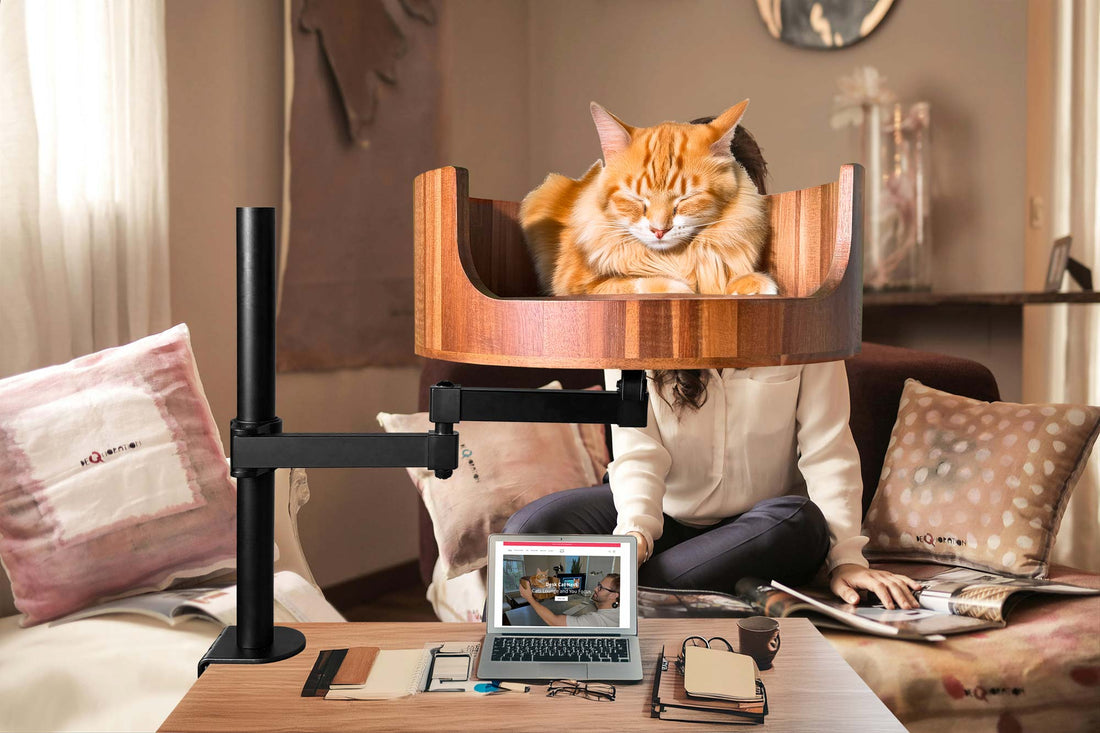
Why Does My Cat Lick and Then Bite Me? Understanding Behavior
Share
Have you ever experienced the perplexing behavior of your cat licking you affectionately, only to suddenly switch gears and give you a painful bite? This common feline behavior can be confusing and even frustrating for cat owners. In this article, we will delve into the reasons behind why cats exhibit this behavior, known as “love bites,” and what it means in terms of their communication and emotional state.
Understanding this behavior is key to building a strong bond with your feline companion and ensuring a positive relationship. We will explore the possible motivations behind your cat’s actions, including their natural instincts, socialization, and individual personality traits. By gaining insight into why cats engage in licking and biting behavior, you can learn to interpret your cat’s cues more effectively and respond in a way that addresses their needs and strengthens the bond between you. Let’s unravel the mystery behind why your cat may be showing you affection one moment and delivering a sharp nip the next.
1. Cats use licking and biting as a form of communication and affection towards their owners.
2. Licking followed by biting may be a sign of overstimulation or play aggression in cats.
3. Understanding your cat's body language and cues can help prevent unwanted bites during interaction.
4. Providing appropriate outlets for your cat's energy and playtime can help reduce biting behavior.
5. Consulting with a veterinarian or animal behaviorist can offer valuable insights and solutions for managing licking and biting behavior in cats.
Instinctual Behavior
Cats are natural hunters, and licking their prey before biting is a common behavior seen in the wild. This instinct carries over to domestic cats, who may lick their owners as a sign of affection before playfully nibbling or biting. By understanding this instinctual behavior, cat owners can better interpret their cat's actions and respond accordingly.
Communication Signals
Licking followed by biting can also be a form of communication for cats. It may signal that your cat is overstimulated or wants the interaction to stop. Pay attention to your cat's body language and any vocalizations they may make during this behavior to determine their comfort level. Understanding these communication signals can help prevent potential aggression or stress in your cat.
Territorial or Playful Behavior
In some cases, licking and biting may be a result of territorial behavior or playfulness. Cats may assert dominance by licking and then biting, especially if they are not adequately socialized with other cats. Additionally, cats use play biting as a way to engage with their owners and release excess energy. Providing interactive toys and playtime can help redirect this behavior in a more appropriate manner.
Health Concerns
It's essential to consider any potential health concerns that may be causing your cat to lick and bite. Pain, discomfort, or underlying medical conditions can lead to changes in behavior, including increased aggression or irritability. If you notice a sudden change in your cat's behavior, it's crucial to consult with a veterinarian to rule out any underlying health issues.
Training and Behavior Modification
If your cat's licking and biting behavior becomes concerning or problematic, consider implementing training and behavior modification techniques. Positive reinforcement, such as rewarding good behavior and redirecting negative behavior, can help shape your cat's actions. Consistency and patience are key when working on modifying your cat's behavior. Consulting with a professional animal behaviorist may also provide valuable insights and assistance in addressing this behavior.
Frequently Asked Questions
Why does my cat lick me and then bite me?
When your cat licks you and then bites you, it might be a sign of affection mixed with overstimulation. Some cats tend to become overexcited during petting, leading them to bite. It could also be a way for them to play or show dominance.
Is this behavior considered normal for cats?
Yes, this behavior is relatively normal for cats. Licking followed by biting can be a common behavior displayed by cats, especially during playtime or when they are feeling overwhelmed. However, if the biting becomes aggressive or frequent, it's essential to address the behavior.
How can I prevent my cat from licking and biting me?
To prevent your cat from licking and biting you, it's essential to monitor their body language and signs of overstimulation. If you notice them becoming too excited, take a break from petting and give them space. Provide them with appropriate toys and outlets for play to redirect their behavior.
Will the Desk Cat Nest help with my cat's licking and biting behavior?
The Desk Cat Nest can provide your cat with a cozy and comfortable space to relax and unwind, potentially reducing their stress levels and preventing overstimulation. However, it's essential to address the root cause of your cat's licking and biting behavior through behavior training and positive reinforcement techniques.
In conclusion, providing your cat with a Desk Cat Bed can greatly improve the behavior of licking and then biting. This elevated and comfortable resting spot can offer a sense of security and reduce stress levels, ultimately leading to a decrease in aggressive behavior. With its soft cushioning and cozy design, the Desk Cat Bed can become a favorite spot for your feline friend to unwind and relax, promoting positive interactions between you and your cat. Make the valuable choice of investing in a Desk Cat Bed today to enjoy the numerous benefits it can bring to your furry companion and your relationship with them.



















































